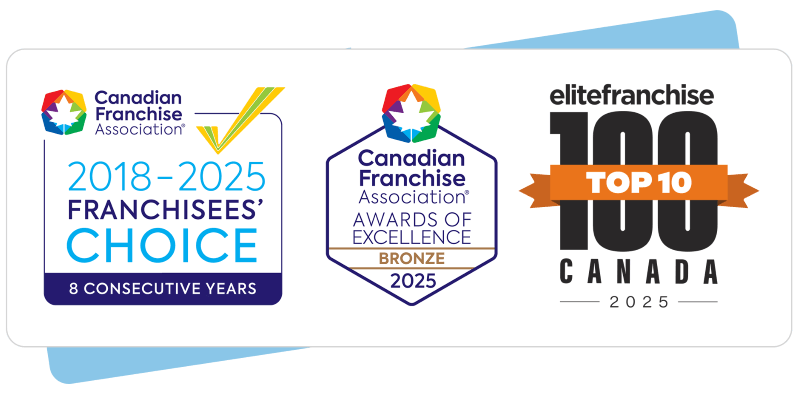Kimberley Chapman
Centre Director
Read MoreKimberley Chapman
Centre Director
For the past ten years, Kimberley has been at the helm of the Oxford Learning Centre in Guelph, transforming it into a beacon of learning and growth in the Guelph community. Her commitment to educational innovation and student success has not only benefited countless learners but has also earned her a respected position on the Franchise Advisory Committee. In this role, Kimberley collaborates with other franchise owners to enhance the quality and reach of the Oxford Learning network.
Beyond her professional achievements, Kimberley brings a vibrant energy to everything she does. She is an enthusiastic singer with a particular fondness for Taylor Swift songs, often using music to create a joyful and motivating atmosphere at the learning centre. Her love for animals is evident in her special bond with her pet chihuahua, Bella, who is a beloved member of her family.
Kimberley's dedication to community service is exemplified by her 31 years of volunteer work with Scouts Canada. Her long-term involvement in this organization underscores her commitment to nurturing leadership, teamwork, and resilience in young people.
In all aspects of her life, Kimberley Chapman embodies the spirit of lifelong learning, community engagement, and personal growth. Her holistic approach to education and her unwavering dedication to her students make her a cherished leader and mentor in the Guelph community.
×Jamie Gallo
Education Director
Read MoreJamie Gallo
Education Director
Jamie Gallo is the Education Director at Oxford Learning, where she combines her extensive educational background with a passion for student success. Starting as an instructor in May 2011, Jamie's dedication and expertise led to her promotion to Coordinator in 2018, and shortly after, in 2019, she became the centre's Education Director. In this role, Jamie oversees the development and implementation of educational programs that cater to a wide range of student needs, ensuring academic excellence and growth.
Jamie holds an Honours Bachelor of Arts in English, which she earned from the University of Guelph in 2010. Her academic background provides a strong foundation in language and literature, enriching her approach to education. Jamie's commitment to continuous learning and personal development is evident in her professional achievements and her ability to create a nurturing and dynamic learning environment.
Outside of her professional life, Jamie is a black belt apprentice in Goju Ryu Karate, showcasing her dedication and discipline in martial arts. She is also an avid cat lover and shares her home with her beloved cat, Seth. Jamie's diverse interests and skills contribute to her holistic approach to education, fostering a nurturing and dynamic learning environment at Oxford Learning.
Randi Miller-Stewart
Education Director
Read MoreRandi Miller-Stewart
Education Director
As the Education Director at Oxford Learning, Randi Miller-Stewart brings a wealth of experience and a dedicated passion for fostering academic excellence. Randi's journey with Oxford Learning began in 2021 when she joined as an Education Coordinator. Through hard work, commitment, and a deep understanding of educational needs, Randi advanced to her current leadership role, where she oversees the development and implementation of innovative educational programs that support student success.
Randi holds a Bachelor of Arts in English, which has provided her with a strong foundation in language and communication skills. To further enhance her professional expertise, she pursued a Graduate Certificate in Human Resource Management, equipping her with the skills necessary to manage and develop educational teams effectively. Additionally, Randi has earned a Graduate Certificate in Teaching English as a Second Language, enabling her to design and deliver specialized instruction tailored to diverse learner needs.
Outside of her professional life, Randi is an avid sports enthusiast, having played baseball for 15 years. She also enjoys caring for her pets, including a bunny named Miles and an iguana named Bugs. Randi's diverse interests and skills contribute to her holistic approach to education, fostering a nurturing and dynamic learning environment at Oxford Learning.


 Personalized Programs Help Students Succeed
Personalized Programs Help Students Succeed The Plan
The Plan The Payoff
The Payoff









